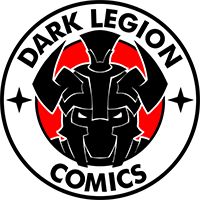It Came From the Nineties: Unforgotten Science Fiction from the End of the 20th Century
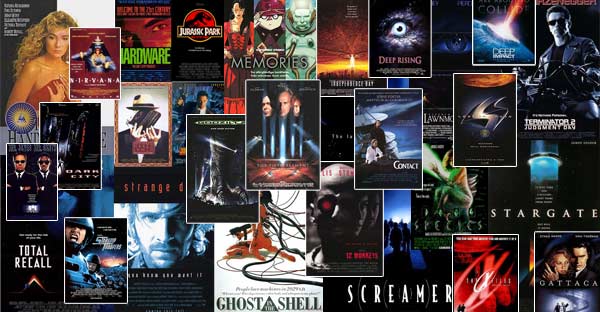
REPOST 3/1/24. In honor of Farscape’s Silver Anniversary and because my review of Helldivers 2 needs an editing pass when my brain isn’t fried, I repost this Dark Herald classic.
TV tends to lag behind film trends. The 1980s is arguably the best decade ever for science fiction and fantasy movies. In the 1990s the small screen followed suit.
This is a list of 1990s sci-fi series that I decided weren’t obscure enough to qualify as forgotten. I’ll do a different list for stuff like Time Trax and Mantis another time. These shows were well known at the time but have fallen off the radar since.
Regular readers will know of my ridiculous fondness for the 1980s. I’m not a guy that lives in the past, but when I do think about the memories that bring the easiest smiles, the ones where the world seemed brightest, it was the Eighties. Which is very odd when I look at it rationally because the very best times of my life were spent in the Nineties.
The 1990s were very much Generation-X’s decade in a way that the 1980s weren’t. In the Eighties, we were either in high school or college. In the 1990s we were out of school and trying to make our way in the world. And finding out just how many doors weren’t open to us. Not unless you were Somebody’s kid, Somebody’s little cousin, or Somebody’s best friend’s kid. But we chumpishly figured that was just a temporary thing because of the bad economy. Or having picked a major that wasn’t in quite as big a demand as we thought it would be. The opportunities would come soon enough, this was America, wasn’t it? We just had to be patient.
We didn’t quite understand yet that the wave had crested already, and Generation-X would be permanently behind the power curve. America now had too many elites and not nearly enough elite jobs to go around. That the gates were only going to be unlocked for those who were very well connected. Opportunity was based on your parent’s relationships first and foremost. Those with the right checkboxes, regardless of performance, would come second. Merit was at best a tertiary consideration for the gatekeepers. Only if there was no one available at all from the first and second categories would there be an, (almost resented attempt) to pick the best-qualified applicant from a pool of complete strangers. The most foolish among us thought that the military would be different.
Ah well.
But when you are a young adult and don’t have any crushing responsibilities the world is easier to deal with in general. Sleep is refreshing. When you get punched your jaw doesn’t still hurt three days later. It isn’t hard to make a pretty girl giggle, blush and slap your arm because, “you are s-o-o-o bad.” The jobs that we landed were definitely of the “you have to eat shit” variety. But you had friends, you had your girl, and you had Saturday night to forward to. You don’t have to be rich to have the best times of your life.
And usually, you don’t know when the best times of your life have come to end.
Star Trek Deep Space Nine
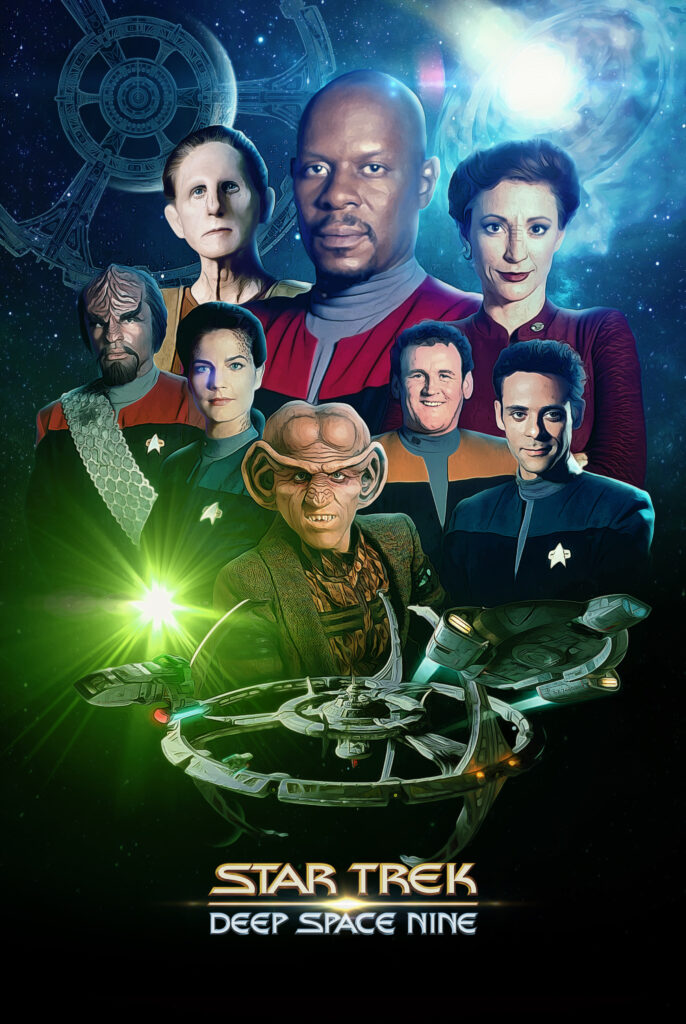
I was going to have to include a Star Trek shown on one these on my listicles sooner or later.
This was the first and only Star Trek show to ever break new ground for the franchise.
Every other Trek show took place aboard a ship and that ship was three times out of four named Enterprise. Voyager thought it was being new and different but after the premise was established, it comfortably slid into the same anthology format as the other shows. Ship goes to a new planet, stuff happens, show attempts to show its audience the error of its ways in a humanist fashion. Planet is never seen again. Rinse and repeat. The pity of Voyager is that given the premise they could have made it a show with a five-season, three-act story arc. It’s supposed to be a 75-year journey to get home, so set each season fifteen years after the previous season. You’d have people dying and being born as the ship limps across the galaxy with only the ship’s Doctor remaining unchanged. You’d have close to an entirely new group of people by the time you reached Earth. Or you could just ignore your own premise and magic the ship home in the last episode. Plus throw in second-wave feminist babble.
Deep Space Nine, did something that was pretty different.
Eventually.
Given the habits, the writers were in, they tried to write Next Generation style anthology stories at first but in the second season the static nature of life on a space station finally sunk in for the writers. DS9 started developing plots around the setting of a Casablanca in space. The characters developed depth and stories were largely built around them. The shady bartender, the shapeshifter cop with amnesia, the tailer who used to be (maybe) a spy, the military men who are raising families in garrison. This was also the only Star Trek show to start multi-episode story arcs. The writers would even occasionally challenge their own views, (that doesn’t happen anymore). For instance, in the episode Captive Pursuit there was an intelligent alien being hunted by other aliens. And while the Federation was horrified by this practice both hunter and hunted viewed being the one hunted as the highest honor possible in their culture.
Its premise breathed new life into what was becoming (and would become again) a stale franchise.
There is however the ticklish question of how original an idea it was.
Babylon 5
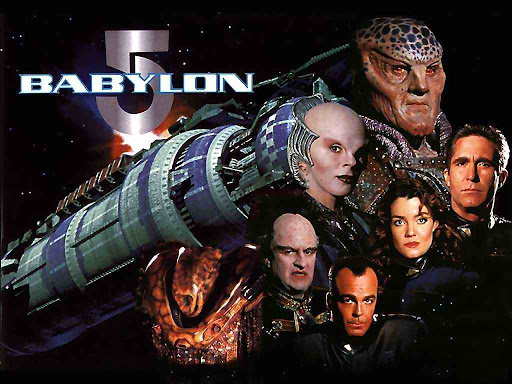
Michael J. Straczynski claims that he pitched an idea to the Star Trek producers about a series that takes place entirely aboard a Space Station, (to include a shapeshifter) but they passed on it.
Babylon 5 had a great cast of characters and each one was well layered with their own story arc. The Narn ambassador started as a bad guy but after his planet was invaded and conquered, he was redeemed by the struggle to free his people into a noble character. The Centauri was the opposite, generally a likable good-natured, and sympathetic guy until he made Faustian bargain to return his people to their lost glory. Eventually ending his days as both an emperor and a slave. There was the loyal military officer that was one day forced to rebel against his own government. And the alien from the ancient race that was transforming into something much more human. All of this was set against a war where an enemy who was one of the oldest creations in the universe rose from its eons-long slumber to make war against all of the younger races of the galaxy.
The performances were all top notch. The effects were good in their day (but have not stood the test of time).
Babylon 5 was the first show (that I know of) to have a five-year story arc. It had a very identifiable plot structure with an introduction to the setting, a rising tension until it reached its climax. To be accurate, it did that in four seasons, the fifth was an extended denouement. Understandable. The show was always under threat of cancelation.
It was produced for PTEN, which was a Warner Brothers subsidiary that provided content for Non-network affiliated TV stations. Basically UHF TV. They wanted unaffiliated stations but most of their customers were already affiliated with FOX and its five-night a week schedule, PTEN’s stuff ended up on the weekends. Toward the middle of B5’s run, it was getting increasingly more difficult to watch because FOX programming expanded to seven nights a week. The local station near Camp Lejeune was running Babylon 5 at 1:00 AM by the third season. I remember my wife boggling at the commercials for it, they were either 1-900 sex lines or “Mrs. King, the religious and holy woman who healed painful diseases and got rid of all kinds of bad luck.” That is a real quote by the way.
I was glad it was able to finish its main story. It was a very satisfying show taken as a whole. It’s still worth a watch, I just wish the show was worth reworking the effects.
Seaquest
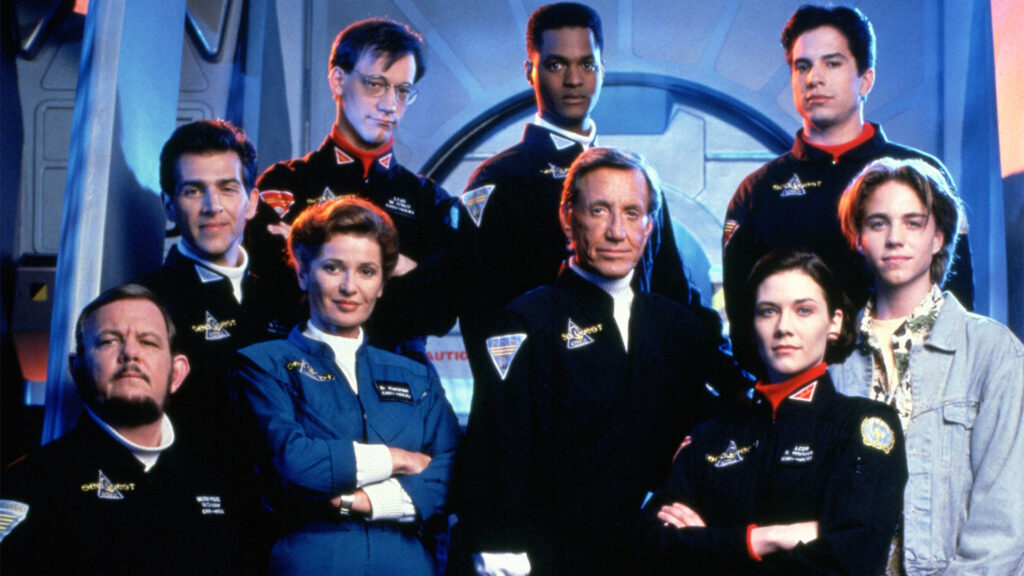
Wet Trek.
That was basically the show in a nutshell.
By the 1990s NBC seems to have developed a bit of a complex. For a quarter of a century, everyone had been dragging the network for being catastrophically stupid enough to cancel the original Star Trek. Like, why so dumb, yo? The truth is that it wasn’t a bad decision at all, Star Trek was expensive as hell to produce and was routinely trounced in the ratings by Laugh-In. It. Was. Not. Making. Money. Cancelation was a no-brainer; the questionable part was giving them another half-season.
Consequently, when Steven Spielberg and Rockne O’Bannon pitched a show that was pretty much underwater Star Trek, NBC jumped at this chance for redemption. The network went all-in on the promotion, this was to be their flagship show. And NBC was deeply regretting it by the end of the first season.
Seaquest was pretty decent during the first season. The stories were well-paced and reasonably original. They had all kinds of underwater adventures that were appropriate for the setting. And they were also humanist in nature, more trying to show you the way than preach at you for being evil. Roy Scheider played the Captain, the ship’s doctor was his friend and confidante, Ted Raimi was playing it straight for a change and wasn’t bad it, they had their own Wesley who was nowhere near as annoying, plus they had a dolphin crew member.
Like Star Trek before it, it was a good show that had a loyal but limited audience. It had a huge cast, the sets were expensive, all the effects were CG. And water CG has always been the most expensive kind. People were watching but at $20 million a season it needed to be the biggest thing on TV and it just wasn’t. NBC slashed the budget and fired half the cast. Then the network started coming up with terrible ideas that came straight from Voyage to the Bottom of the Sea.
By the third season, Scheider was out in favor of the good but less expensive Michael Ironside. But the end was in sight. At least NBC can console itself over the fact that no one ever criticized them for canceling Sea Quest.
Sliders
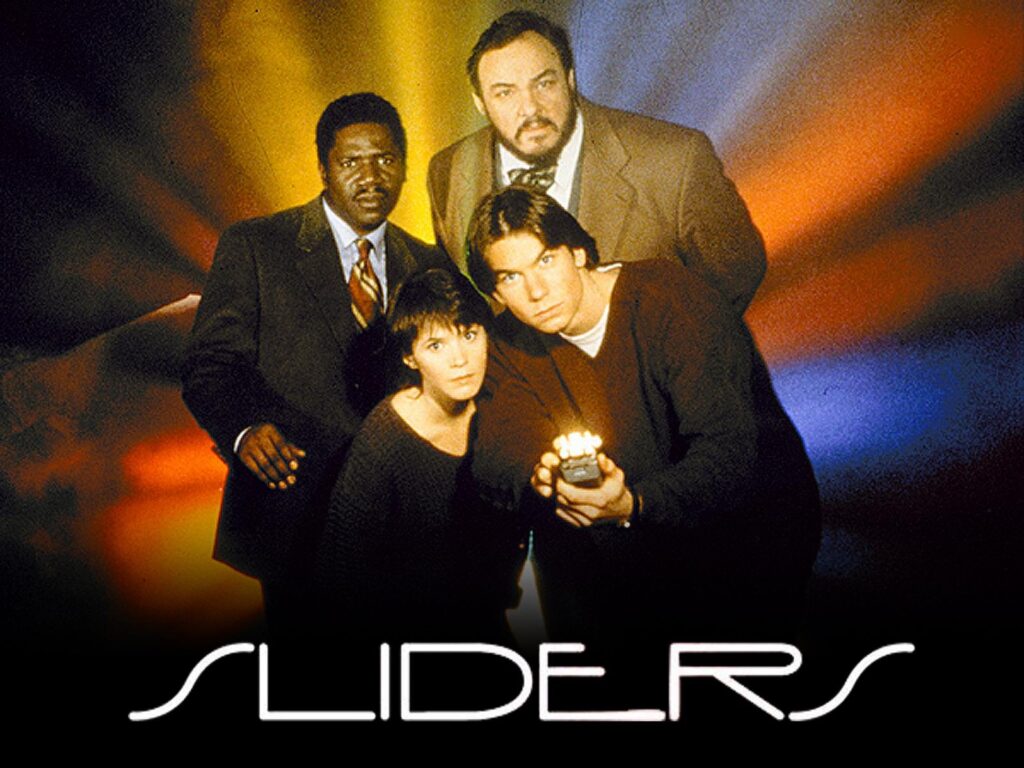
From Wet Trek to Earth Trek.
Sliders started out pretty strong but ended very weak.
It was an alternate universe anthology series and at first, it was pretty thoughtful. Five people are caught in a student’s wormhole vortex thing that is controlled by a device with a timer, but they have to override the timer to get out of a certain-death situation. However, in doing they lose the coordinates to their own world. They then need to spend each episode waiting for the timer to go off, it does so at random. It could be an hour, it could be weeks. They are hoping each slide they make is the one that takes them home. They travel to Earths where America lost the revolution, where Communists took over, where a plague is wiping out the planet. And one where the dinosaurs are still around.
Sliders started off on Fox and at the start of the third season, Fox moved the show from Vancouver to LA and started sending lots and lots of notes. They wanted more action and less “thinkey”. The quality of the writing dipped significantly, and I personally stopped watching.
John Rhys-Davies played the professor and by the end of the third season he had had enough and bailed. “Rhys-Davies stated in a 2016 interview that he had been critical of how the show was written, calling the concept what “could’ve been the best show on television”, but most of the scripts he had been given were “incomprehensible gibberish” and missed the potential of the concept. He cited that Fox had exerted too much control on the scripts as part of the reason for his departure. In a 2014 interview at the Toulouse Game Show, Rhys-Davies stated that the inability to get writers that had read science fiction in the first place led to the show’s downfall, and their inexperience in the area led to the show often repurposing ideas from other works. He said, “We did an episode like Tremors, one like Twister, one like The Night of the Living Dead and even one like Doctor Moreau’s Island, using the film’s original masks!” He found the writers were just “looting” these ideas rather than using these as a tribute, pointing to one episode where Quinn needed to cross an invisible bridge and on approaching the writer about it, discovered he had never seen Indiana Jones and Last Crusade which Rhys-Davies had starred in and simply used the idea instead of toying with the meta nature of the scene. For Rhys-Davies, “the breaking point for me was when I walked in and saw the writers sitting around looking at a DVD of Species which had just been released and saying: ‘Look, we could take a bit of that scene there and a bit of that scene there.’”
After screwing it up eight ways from sunrise Fox canceled it.
And Sci-Fi Channel picked it up. Sabrina Loyd was not getting along with new cast addition Kari Wuhrer by then and didn’t come back. When season 4 ended, Jerry O’Connel didn’t like where the show was going. Felt it had lost too much when Rhys-Davies and Loyd quit and decided to pursue a film career rather than ride this one into the dry lakebed.
By the fifth season, the only character left from the first season was Rembrandt “Cryin’ Man” Brown. This would be like a third movie where the only original Ghostbuster left was Winston. Towards the middle of the fifth season, Sci-Fi had slashed the budget and stopped sending notes. Twin signs of approaching death. Just to make sure they were doomed; a producer submitted a script that directly contravened Sci-Fi Channel’s strict policy of not pointing a gun at someone’s head by having a main character get his head blown completely off. Sci-Fi said nothing, they weren’t even reading the scripts anymore.
Sci-Fi was just padding the episode count for the video tape/DVD market. By then they had a new flagship series they were pouring all their resources into.
Farscape
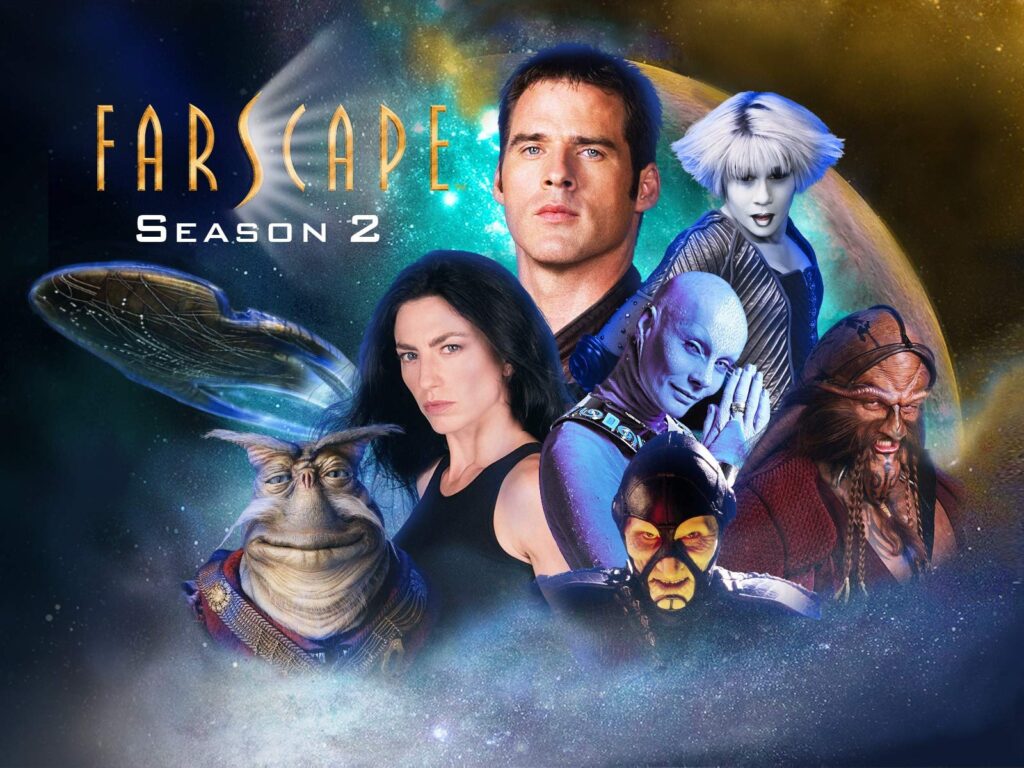
This was my personal favorite of this list. It’s entirely due to the strength of the characters.
Farscape was another show that spent its first season finding its footing then really took off in the second season. It was a fantastic combination of practical effects and CG that didn’t demand too much of the render farm so it still looks good today. Henson Studios finally took Henson Studios out of the muppet in this one. The Creature Shop creations were the best since Labyrinth.
Initially, the show needed work. John Crichton being thrown across the universe through a black hole, falling in with escaping criminals, and being chased by Space-Nazis wasn’t interesting. But in the second season, the characters had matured, a dull enemy and turned into an intriguing frenemy. And it turned out the Space-Nazis were being hard-asses because they were facing an enemy who was stronger than they were and determined to commit genocide upon them.
Farscape was different, it was funny and it brought the Australian weird (nobody does weird like the Aussies). In the second season, Crichton was facing a much more frightening enemy in the cultured monster that was Scorpius. Crichton himself had been mentally damaged, and his shipmates’ issues were a lot more apparent. D’Argo drew strength from an inflexible sense of honor but was also given to uncontrollable rage. Chianna had little self-control and couldn’t help but ruin everything good in her life. Aeryn had left the Space-Nazis (Peace Keepers) but couldn’t find an identity outside of them and had no way back to them. The easiest path to a new identity was a life with Crichton but she couldn’t let herself cross that line. Rygel (the muppet) was the simplest character, spoiled, utterly selfish, frequently disgusting, cunning, conniving yet at the end of the day he cared for the only people who had ever really been his friends.
These were characters that did bad things, and frequently did them to each other. They were incredibly hurt but in the end they knew they only had each other.
Crichton progressed from anonymous barbarian to a legendary galactic outlaw who kings called, “John” and he still mouthed off to them.
Farscape was magnificent, never miss an episode fun.
And it was destroyed in the ratings when Star Trek the Next Generation returned to the air after having been off for seven years. On top of that, the former FOX executive who had made so many brilliant decisions about Sliders was now in charge of Sci-Fi Channel. Farscape was canceled and its budget used to buy up reruns of the X-Files which proceeded to do much worse against NextGen in the ratings.
Farscape was briefly brought back as a mini-series and I was glad they were able to finish the story. But the truth is compressing a 22 episode season into four hours lost a lot of what made it special. Which was the gradual slow-paced growth of the story.
The Nineties lasted came to an abrupt end on September 11th, 2001.
Usually, you don’t know when the best times of your life have come to an end.
But sometimes you do.

